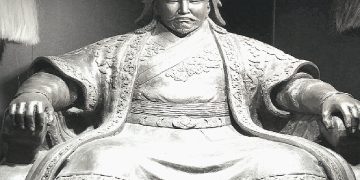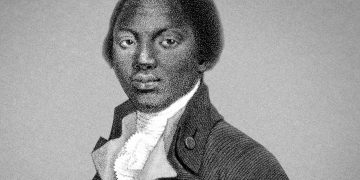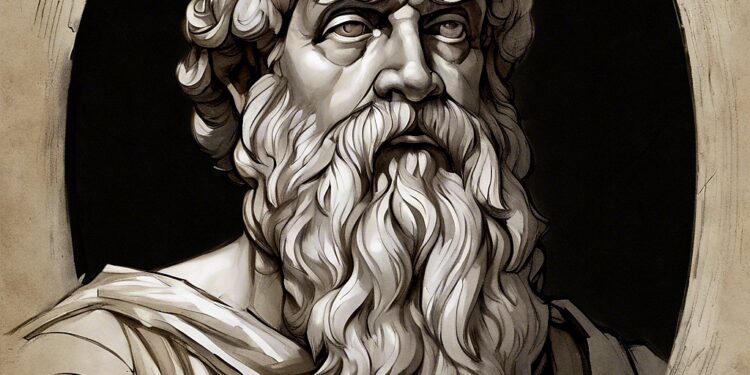Plato: The Philosopher of Idealism and the Socratic Method
Plato, one of the most influential philosophers in Western history, was born in Athens, Greece, around 427 BC. He was a student of Socrates and the teacher of Aristotle, two other great figures in philosophy. Plato’s ideas and teachings have had a profound impact on various fields, including philosophy, politics, and education. In this article, we will explore the life, works, and philosophy of Plato.
Life and Education:
Plato was born into an aristocratic family, and his original name was Aristocles. However, he later acquired the name Plato, which means “broad” or “wide,” possibly referring to his broad forehead or broad shoulders. Plato’s family had a strong connection to politics, and his relatives included prominent figures in the Athenian government.
Plato received a comprehensive education in various subjects, including mathematics, music, and gymnastics. However, it was his encounter with Socrates that had the most significant influence on him. Socrates taught Plato to question assumptions, seek truth, and engage in critical thinking – principles that would become fundamental to Plato’s own philosophy.
Philosophy and Works:
Plato philosophy is characterized by his belief in idealism and his use of the Socratic method. Idealism, as proposed by Plato, asserts that the material world is merely a reflection or imperfect copy of the eternal and unchanging realm of forms or ideas. According to Plato, true knowledge can only be attained by transcending the physical world and contemplating the realm of forms.
One of Plato most famous works is “The Republic,” where he presents his ideal society governed by philosopher-kings. In this dialogue, Plato explores various topics, such as justice, the nature of the soul, and the role of education in shaping individuals and societies. Another notable work is “The Symposium,” in which Plato reflects on the nature of love and desire.
The Socratic method, named after Socrates, is a dialectical approach to seeking truth through a series of questions and answers. Plato adopted this method and used it extensively in his dialogues to examine various philosophical concepts. Through the Socratic method, Plato aimed to encourage critical thinking and challenge individuals’ preconceived notions.
Legacy and Influence: You May Also Like Marcus Aurelius
Plato’s ideas and teachings have had a profound and lasting impact on Western philosophy. His concept of idealism influenced philosophers such as Immanuel Kant and Friedrich Hegel. Plato’s emphasis on education as a means of cultivating virtuous individuals and creating an ideal society has also had a significant influence on the field of education.
 some additional points to delve deeper into the life, works, and philosophy of Plato:
some additional points to delve deeper into the life, works, and philosophy of Plato:
1. The Academy: After the death of Socrates, Plato founded the Academy, an institution dedicated to the pursuit of knowledge and philosophical inquiry. The Academy became a renowned center of learning and attracted students from all over Greece. It operated for nearly 900 years, making it one of the longest-lasting educational institutions in history.
2. Theory of Forms: Plato’s theory of forms is a central aspect of his philosophy. According to Plato, the physical world we perceive through our senses is an imperfect reflection of the world of forms. Forms are eternal and unchanging, representing the true essence of things. For example, there is an ideal form of a chair, which exists independently of any specific physical chair. Plato believed that by contemplating these forms, one could gain true knowledge.
3. Allegory of the Cave: In his famous allegory of the cave, Plato uses a metaphor to illustrate his theory of knowledge and enlightenment. He describes a group of prisoners chained inside a cave, facing a wall where shadows are projected. The prisoners mistake these shadows for reality since they have never seen anything else. Plato suggests that philosophers, like those who escape the cave and see the outside world, have a deeper understanding of reality and the forms.
4. Theory of Recollection: Plato proposed that learning is not a process of acquiring new knowledge but rather a process of recollecting knowledge that the soul possessed before birth. According to Plato, the soul existed in the realm of forms before being trapped in the material body. Learning is simply a process of remembering what the soul already knows.
5. Political Philosophy: In addition to his metaphysical and epistemological ideas, Plato also delved into political philosophy. In “The Republic,” he presents his vision of an ideal state governed by philosopher-kings. According to Plato, only those with a deep understanding of the forms and the nature of justice are fit to rule. He believed that a just society could only be achieved through proper education and the rule of the wise.
6. Influence on Christianity: Plato’s philosophy had a significant influence on early Christian thinkers, such as Saint Augustine and Saint Thomas Aquinas. They saw parallels between Plato’s theory of forms and Christian theology, particularly in the concept of the eternal and unchanging nature of God.
7. Critiques of Plato: Despite his lasting influence, Plato’s ideas have also faced criticism. Some philosophers argue that his theory of forms is too abstract and divorced from the realities of the physical world. Others criticize his hierarchical view of society, which places philosophers at the top and assigns limited roles to other members of society.
His ideas on truth, knowledge, the nature of reality, and the role of philosophy in society remain relevant to contemporary debates and continue to shape our understanding of the world.
Furthermore, Plato’s dialogues continue to be studied and analyzed by scholars around the world. His exploration of topics such as ethics, politics, metaphysics, and epistemology remains relevant to contemporary philosophical debates.
Plato, the philosopher of idealism and the Socratic method, made significant contributions to the field of philosophy. His ideas continue to shape our understanding of truth, knowledge, and the nature of reality. Plato’s works serve as a testament to the power of critical thinking, questioning assumptions, and seeking deeper insights into the human experience. Buy history books here!













Comments 1